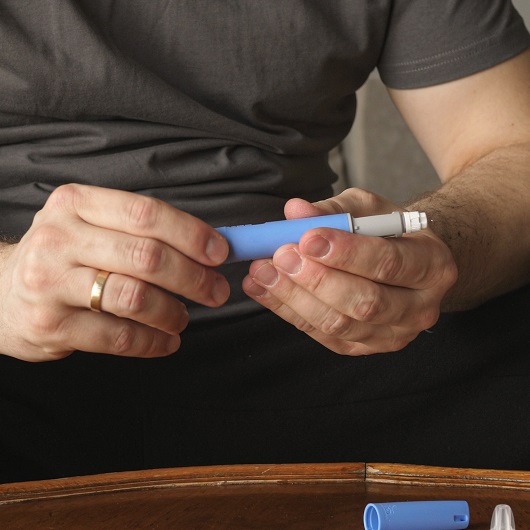What Can You Eat After Weight Loss Surgery?

June 15, 2022
Updated January 2, 2025
Considering weight loss surgery and curious about what you can eat after the procedure? Changing your eating habits actually begins before surgery. Doctors recommend that you work with a nutritionist for about three months before surgery to learn about healthy eating. This will help you achieve your weight loss goals after surgery.
While each program differs, your post-bariatric surgery diet may consist of:
Day One: Clear Liquid Diet
Within the first 24 hours after weight loss surgery, you will be placed on a clear liquid diet. Clear liquids allowed on this diet include:
- Broth
- Water
- Sugar-free gelatin
This diet helps the stomach heal by supplying it with necessary fluids, reducing irritation from solids, preventing complications and supporting hydration without overloading the digestive system during recovery.
Weeks One and Two: Full Liquid Diet
This diet builds off the clear liquid diet and includes additions that you’ll consume daily for about two weeks, such as:
- Protein shakes
- Milk products
- Smoothies
- Pudding
- Yogurt
“It is also very important to consume enough protein,” says Jolita Auguste, M.D., bariatric surgeon at Old Bridge Medical Center. “Protein helps you build muscle mass and gives the body energy.”
Weeks Three to Six: Soft Diet
Three to four weeks after bariatric surgery, you will transition to a soft diet, also known as the puree diet. While on this diet, you’ll continue to consume protein shakes, which will be used to supplement your food intake instead of providing all your protein.
This meal plan consists of food that is soft and easy to chew or swallow, like:
- Mashed potatoes
- Scrambled eggs
- Soft fruit, like bananas or avocados
- Ground meat or tofu
- Well-cooked vegetables without seeds or skin
This diet allows the stomach to heal by avoiding irritation and easing the transition to solid foods and smaller portions for effective recovery and weight loss.
Week Seven and Beyond: Regular Diet
About seven weeks after surgery, you will be able to begin your regular post-surgery diet. However, it’s important to take this time to listen to your new stomach’s cues for fullness. You’ve changed decades of dietary habits, and your body needs time to adjust.
Support groups are another great resource for those navigating the bariatric surgery journey.
They provide valuable information on nutrition, exercise and maintaining a healthy and long-lasting weight loss lifestyle.
Next Steps & Resources:
- Meet our source: Jolita Auguste, M.D.
- Make an appointment with a bariatric specialist or call 800-822-8905.
- Learn more about weight loss surgery at Hackensack Meridian Health
- Learn more about weight-loss support groups.
- Thinking about bariatric surgery? Take our weight-loss surgery survey.
The material provided through HealthU is intended to be used as general information only and should not replace the advice of your physician. Always consult your physician for individual care.






